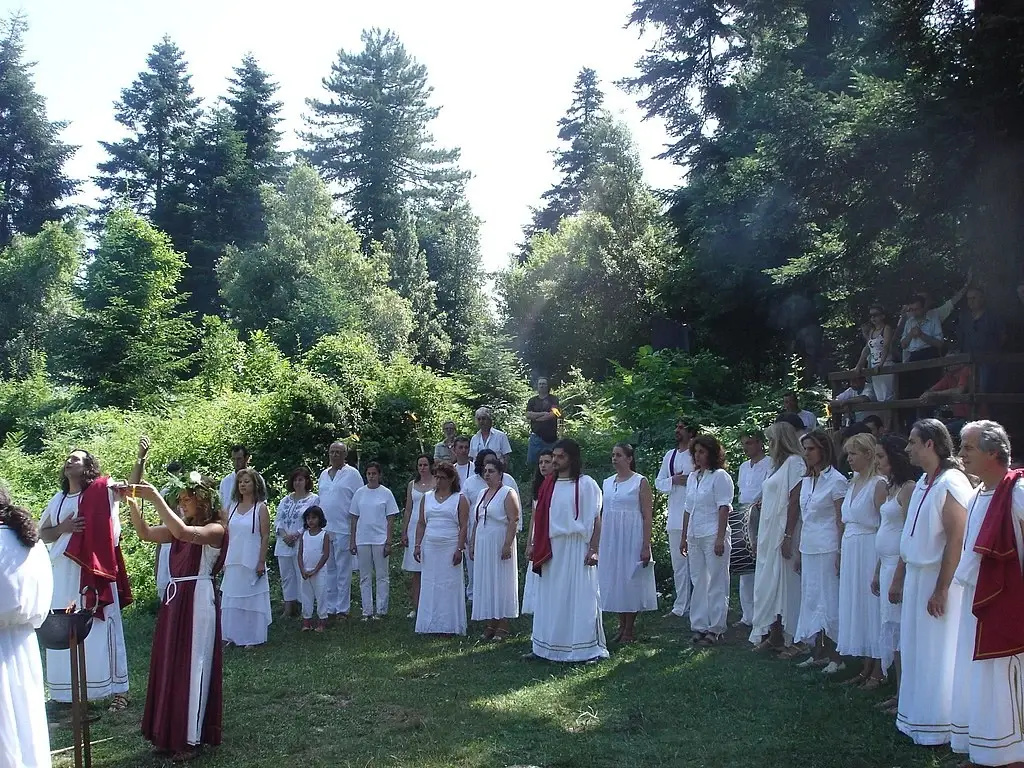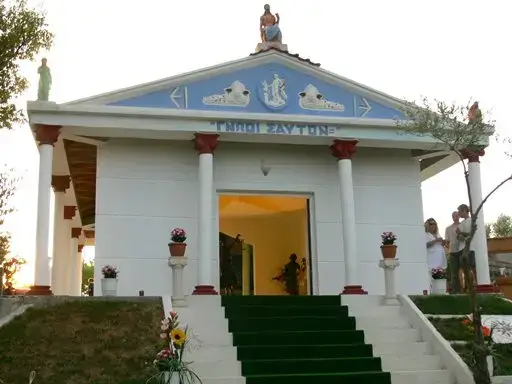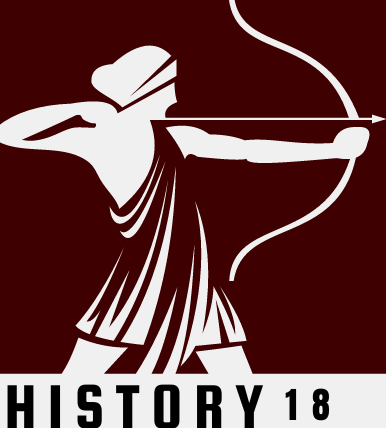The ancient Greeks held a strong belief in gods who actively influenced every facet of human existence, spanning work, theater, justice, politics, marriage, and warfare. These deities, part of the Greek pantheon, exhibited strikingly human characteristics. Prone to errors and possessing relatable flaws, they offered a connection for their followers. Ancient Greeks learned about their gods through various myths and stories, paying reverence to Zeus, Athena, Eros among others.

However, the advent of Christianity introduced a seismic shift in the spiritual landscape. The tenets of Christianity stood in stark contrast to Greek beliefs, ultimately supplanting the longstanding worship of the Olympian Gods and Goddesses. This transformation marked a profound alteration in the predominant faith of the region that was once home to these revered deities. Greek god and myth continue to captivate the imaginations of people all over the world. It makes one wander. Do People Still Believe in Greek Gods?
When Did the Ancient Greek Religion Die Out?
It is widely held that the ancient Greek religion faded away by the 9th century CE, with minimal evidence suggesting its survival beyond the Middle Ages, particularly in public contexts. The American Journal of Philology highlights that remnants of Greek religious practices endured in Tsakonia, a small Peloponnese region, and the Mani Peninsula in Western Laconia until the 12th century.
A documentary titled “I Still Worship Zeus,” centered on Greek Revivalism, featuring Panagiotis Marinis, a member of the Greek Dodecatheon, asserting the continuous existence of ancient Greek religious practices across the intervening centuries. Some even assert being raised in families that upheld this ancient faith.
Do People Still Worship Greek Gods
In a nation where both the state and religious institutions maintain firm control, and approximately 90 percent of the populace identify as Christian Orthodox, the resurgence of Hellenism, an ancient ethnic religious practice also known as Hellenic ethnic religion or Dodekatheism, is a noteworthy phenomenon.
Despite its origins spanning over two and half millennia, the worship of ancient Greek gods has been experiencing a revival since the 1990s. In contemporary Greece, pockets of individuals have embraced the veneration of the Greek Pantheon, leading to the emergence of various organizations dedicated to this cause.
These groups, such as the Supreme Council of Ethnic Hellenes and the LABRYS religious community, are actively revitalizing modernized expressions of celebration and rituals centered around the ancient gods. These movements often hold the belief that Christianity supplanted the ancient practices through force.
Their efforts encompass a range of endeavors, from public rituals, lectures, and publications to theatrical and musical events, all aimed at preserving, promoting, and perpetuating the Hellenic polytheistic religious tradition.
The Prometheia Festival
Believers in the Greek Gods have successfully revived Hellenistic festivals, notably The Prometheia Festival, which stands as the most renowned. Set against the backdrop of Mount Olympus, the sacred abode of the ancient Greek pantheon, this event goes beyond mere institutional practice, embodying a vibrant celebration.
However, this festivity is far from superficial; it serves as a genuine expression of devotion to the ancient gods, a shared principle among these revivalist groups. Over three days, the festival unfolds with a rich tapestry of ancient poetry, lectures, music, dance, ceremonies, and nourishment.
From training sessions for aspiring spear throwers and swordsmen to a torchlit parade through Litochoro’s streets on the opening night, the event embraces authenticity. Set in a meadow above the town, the subsequent days offer a diverse array of hourly activities. The simple yet delectable food, like a savory bulgur wheat stew paired with wine, further enriches the experience.
Modern Hellenism Beliefs
Throughout its history, Hellenism has embodied a diverse array of beliefs, encompassing polytheism, animism, and monism, with adherents often embracing a blend of these viewpoints. Furthermore, interpretations of divinity within the context of Hellenistic philosophies, such as Epicureanism, have contributed to the richness of this religious tradition.
In practical terms, Hellenism predominantly revolves around the veneration of polytheistic and animistic deities. Worshippers hold sacred and pray to the Twelve Olympians, nature spirits like nymphs, chthonic gods of the underworld, and heroic figures. The reverence extends to both physical and spiritual forebears.
The Greek pantheon exhibits a dual nature, embodying both universal qualities that transcend boundaries and local attributes, firmly rooted in specific locales. This intricate interplay allows the gods to possess a presence that is simultaneously all-encompassing and deeply embedded in particular places, similar to the core beliefs of Hinduism.
Theology and Values
Modern Hellenism, the contemporary revival of ancient Greek religious practices, encompasses a diverse theological landscape and a set of core values. Theology within this tradition is subject to differing perspectives. Some argue that theological discussions are integral, drawing from the philosophical texts of ancient thinkers that explored religious themes. Others believe that theology is not central to the ancient tradition.
Modern Hellenism primarily centers around polytheistic and animistic worship. It venerates deities ranging from the Twelve Olympians to nature spirits, underworld gods, and heroes. While lacking dogmas and holy books, adherents emphasize certain guiding principles rooted in tradition. Core values, such as Eusebia (piety), Organikotis (kinship), Dikaiosyne (justice), and Eudaimonia (happiness) are regarded as foundational for personal conduct.
Prominent concepts shaping modern Hellenism include Eusebeia, representing reverence and respect towards gods and parents; Arete, signifying excellence and moral virtue; and Xenia, reflecting hospitality and ritualized friendship. These values draw inspiration from sources like the Delphic maxims, Pythagorean verses, Epicurean philosophy, Aristotle’s ethics, and Stoic philosophy.
Worship in modern Hellenism involves offerings, libations, and rituals. Some practitioners engage in animal sacrifices, while others opt for symbolic offerings like fruits or bread. Altars serve as sacred spaces for prayer and devotion, allowing connections with deities. While theology remains a subject of debate, shared values and practices foster a sense of community and guide ethical conduct within this revived ancient tradition.
Revival of Ancient Greek Religion
Since Roman emperor Julian tried to revive the Ancient Roman religion, many people have attempted to revive the worship of ancient Roman and Greek gods over centruies, with the most significiant efforts taking place from 18th century onwards.
18th to 19th century
The 18th century witnessed a resurgence of interest in Ancient Greek religion among prominent authors and freethinkers. These individuals delved into the study and translation of ancient theological and philosophical works. John Fransham, an eccentric English author, embraced Hellenic beliefs, articulating a theology akin to Neoplatonism. His book “The Oestrum of Orpheus” posited an uncreated first cause and shaping forces resembling the Hellenic pantheon.
Another figure, Thomas Taylor, known as the “English Platonist,” translated Neoplatonic texts and was rumored to advocate a return to pagan practices. Johann Wolfgang von Goethe, a German writer, perceived the Greek gods as symbolic rather than literal figures, finding their essence in his personal experiences. The 18th-century revival, led by these diverse figures, contributed to the rekindling of interest in Ancient Greek spirituality and philosophy.
Romanticism, a literary and artistic movement, championed individualism, reverence for nature, and fascination with the supernatural, including Pagan and Classical Greek beliefs. Romantic poets like William Wordsworth drew inspiration from Greek mythology, as seen in his 1807 poem collection “Poems, in Two Volumes.” Critiquing the materialistic world of the 19th century, Wordsworth expresses a longing for a more connected existence with nature and contemplates embracing pagan beliefs for their depth of meaning, even though he acknowledges their antiquity.
20th Century
Modern Hellenism, the revival of ancient Greek religion, has seen various phases in the 20th century. Neopagan groups emerged, blending ancient Greek elements with syncretic influences from Hermeticism and folklore studies. Thelema and Wicca are prominent examples, with Feraferia focusing on Greco-Roman deities. In the US, the Aquarian Tabernacle Church started a spring festival rooted in the Eleusinian Mysteries.
Amid the 1970s, there was a shift toward reconstructing more authentic forms of Hellenic worship and less syncretism. The Ethnikoi Hellenes (YSEE) played a crucial role, forming the Hellenic National Assembly and establishing itself as a non-profit in Greece by 1997.
As the practice gained traction, the Greek Orthodox Church responded with concern, viewing it as a challenge and forming committees and initiatives by bringing in priests, bishops and university professors to assert Orthodoxy as the only true traditional faith, emphasizing its historical and cultural significance in Greece.
Official Recognition And Modern Hellenic Temples
In May 2006, a significant milestone occurred when an Athens court officially acknowledged the reverence of the Ancient Greek pantheon. Following this, on January 22, 2007, the Hellenist group Ellinais conducted a ceremony at the historic Temple of Olympian Zeus in Athens, marking the first such ritual since the Roman government outlawed ancient Greek religion in the late 4th century. Hellenism was officially recognized as a religion in Greece on April 9, 2017.
The ceremony was a symbolic gesture featuring participants garbed as ancient warriors, leaving their weapons outside to symbolize peace before the Olympic Games. While deemed by some as a strategic publicity event, it drew the attention of the Greek Orthodox Church, sparking concerns that they would intensify their opposition to Hellenism’s recognition.

Despite the 2006 court decision, the Greek Ministry of Culture and Sports still prohibited ceremonies at archaeological sites, leading some 21st-century Hellenic rituals to be manifested as protests. In August 2008, an assembly organized by Ellinais congregated at the Acropolis for both a ritual offering to the goddess Athena and a protest against relocating architectural fragments from temples to a new museum on-site.
The first modern Hellenic temple was established in 1994 outside Thessaloniki in Oraiokastro village and completed in 2009. Another temple, devoted to Alexander and the Earth, emerged in the nearby village of Mesaia in 2019, further illustrating the ongoing revival of the ancient Greek religious tradition.
Summary
Modern Hellenism, the revival of ancient Greek religious practices, is gaining traction in a nation dominated by Christian Orthodoxy. Emerging since the 1990s, this movement involves veneration of the Greek Pantheon and has led to various organizations working to revive celebrations and rituals around ancient gods, often claiming that Christianity supplanted these practices through force.
The renowned Prometheia Festival, set against Mount Olympus, exemplifies this revival, blending authentic rituals with modern expression. Modern Hellenism encompasses diverse beliefs, centered on the veneration of polytheistic and animistic deities. Worship involves offerings, libations, and rituals, fostering a sense of community and ethical guidance.
Modern Hellenism’s revival has taken various forms since the 18th century. Figures like John Fransham and Thomas Taylor embraced ancient Greek beliefs, leading to a resurgence of interest in Greek spirituality. The 20th century saw the emergence of Neopagan groups, blending ancient elements with contemporary influences. Efforts by groups like the Ethnikoi Hellenes have shaped the modern Hellenic landscape, from official recognition to the establishment of modern temples for the worship of Greek gods.
